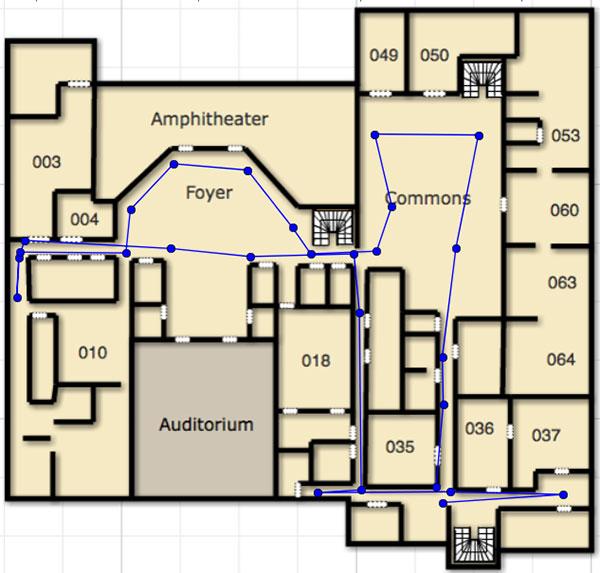Apple recently closed a deal worth about $20 million to acquire WifiSLAM, a Silicon Valley firm focused on building technology that affords users positioning data while indoors.
The Wall Street Journal was able to confirm the acquisition with an Apple spokesman, though the company did not give details of the deal or what it plans to do with WifiSLAM's "indoor GPS" technology.
"[Apple] buys smaller technology companies from time to time,†the spokesman said, declining further comment.
In the report, the publication cited people familiar with the acquisition as saying Apple paid some $20 million in the recently closed deal.
WifiSLAM is a developer of indoor positioning technologies, which extends location data to the inside of buildings and other structures using Wi-Fi signals. The data can be used by third-party apps to accurately grant handset users positioning data where GPS signals are absent.
The indoor positioning startup is two years old and has already raised funding from angel investors, though the exact amount is unknown. WifiSLAM has a number of ties to Google, including the company's co-founder Joseph Huang, who was a software engineering intern at the search giant. Current Google employee Don Dodge is also listed as an angel investor.
Apple could implement the positioning assets into its much maligned iOS Maps app as an answer to Google's Indoor Maps initiative, which leverages crowdsourcing to deliver indoor location information for a number of sites worldwide.
While Apple's first-party mapping service has seen improvements since stumbling out of the gates in September 2012, many users still prefer to use the Google Maps iOS app, which offers features like Street View and a more robust set of satellite imagery.
 AppleInsider Staff
AppleInsider Staff








 Wesley Hilliard
Wesley Hilliard
 Malcolm Owen
Malcolm Owen
 Andrew Orr
Andrew Orr
 William Gallagher
William Gallagher
 Sponsored Content
Sponsored Content
 Christine McKee
Christine McKee

 Thomas Sibilly
Thomas Sibilly







82 Comments
This would be cool for hospitals, airports and universities. It's easy to get lost in those places. Shopping centres too where they have a layout of where the shops and toilets are.
This could be a great thing as much of their mall etc data is way off. As it could also improve iOS accessibility functions. Imagine Siri being able to not only guide someone to a building but also to an actual store or office.
This would be cool for hospitals, airports and universities. It's easy to get lost in those places. Shopping centres too where they have a layout of where the shops and toilets are.
Google indoor maps seems to be a work in progress. They have mapped a limited number of buildings. I'm not sure what criteria they use in deciding which locations to map but based on the link in this article I tried this one:
Go to Google Maps (I'm on my iMac using the desktop version) search for "Chicago O'Hare International Airport" then zoom in to the maximum level centered on the terminal. There are several toilets indicated by purple circles with male and female symbols.
Interesting!
There is a good discussion over at Asymco that centers around Apple's iTunes -- and it's possible e tension to include offerings for both physical and virtual stores.
http://www.asymco.com/2013/03/22/so-long-break-even/#disqus_thread
When I saw this story on 925mac -- the first thing that came to mind was the social aspect of shopping -- and I posted this: